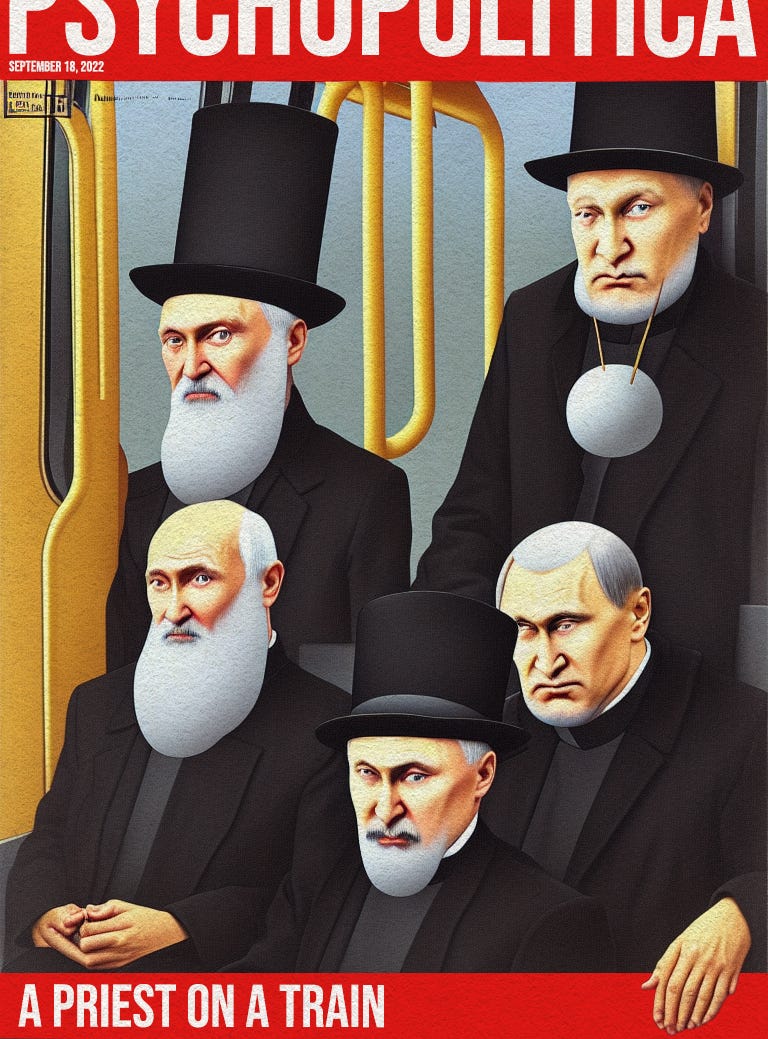I’m writing this on a train going from Moscow to St. Petersburg. For the first couple of hours, until we reached Vyshniy Volochok, a Christian Orthodox priest sat next to me.
I debated myself lazily and silently: I was curious to find out what he thinks, but wasn’t sure I had the energy to carry on what would probably be a surreal and depressing conversation. I prepared a question—”What do you think of that new military temple?”—but kept it to myself for the first hour and a half.
Finally, he said, “Next stop is mine.” I asked if he wanted to trade seats—he’d be closer to the door then—using the polite, formal version of “you,” вы1. He agreed and started his Orthodox small talk:
— You know, nobody used вы in the old days. Peter the First brought this habit from the West. There’s a simple test for what is appropriate: how do we address God?
— Ты2.
— Exactly. Same with the Tsar.
I thought: I’m in this conversation already, so what the hell.
— You’re a priest, aren’t you?
— Do I look like one?
— T…
Keep reading with a 7-day free trial
Subscribe to Psychopolitica to keep reading this post and get 7 days of free access to the full post archives.





